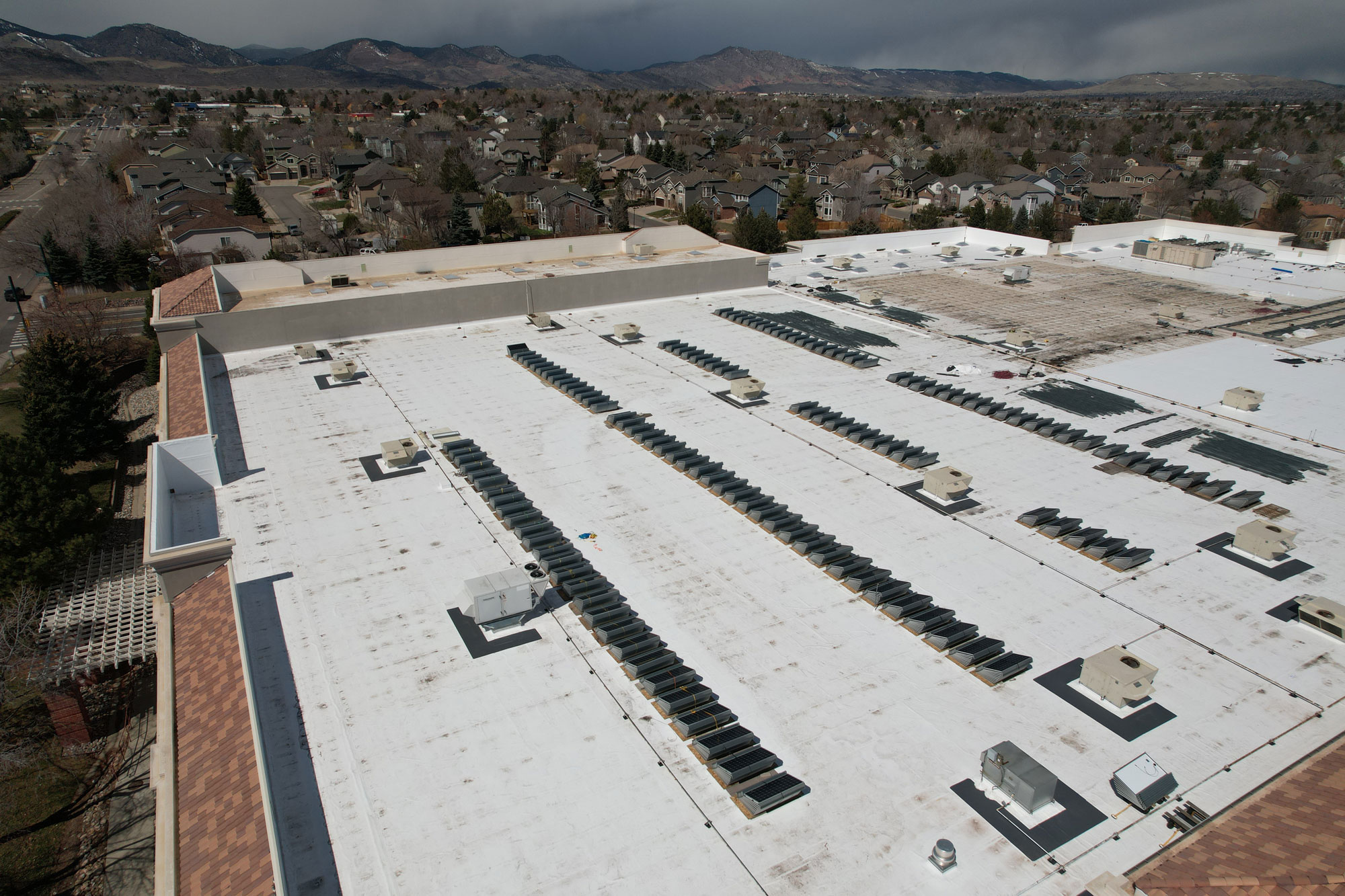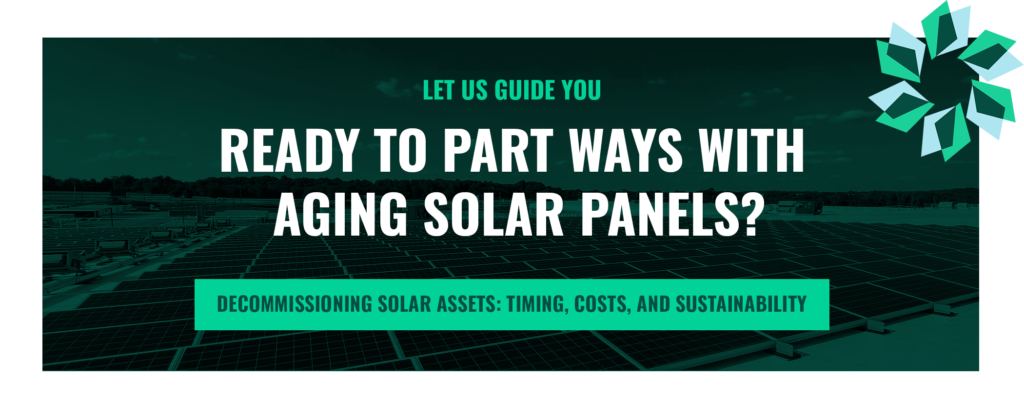The Dark Side of Solar Decommissioning (and What We’re Doing About It)

Solar energy has transformed the U.S. energy landscape over the past two decades. Yet as the earliest solar installations approach or exceed their 25–30 year design lifespans, a looming challenge emerges: what happens at end of life? Without careful planning, the dismantling and disposal of solar systems can significantly negate their original environmental benefits.
What happens when a solar system reaches the end of its life?
End-of-life management (aka solar decommissioning) is the next frontier in sustainability. If not handled properly, decommissioned panels can create new environmental challenges that undermine the very mission solar energy set out to achieve.
Solar panels are built to last, but not forever. According to the U.S. Department of Energy, most photovoltaic (PV) modules retain roughly 80% of their original efficiency after 25-30 years of service. As those systems age, the U.S. faces a growing wave of solar waste, expected to exceed 10 million tons of retired panels by 2050.
The problem isn’t the panels themselves, it’s how they’re handled after removal. When improperly managed, solar modules can leach heavy metals, waste valuable resources such as silver and silicon, and overwhelm landfill systems that were never designed to handle laminated glass composites. That’s where Decom Solar steps in.
Even as the demand for decommissioning rises, not every provider plays by the same rules. Here are six of the most common (and most damaging) industry practices.
1. Landfill Disposal
The simplest option is often the most harmful. Sending solar panels directly to landfills wastes recoverable materials like glass, aluminum, copper, and silicon, and in the case of some older or thin-film modules, risks leaching lead or cadmium into soil and groundwater.
The EPA warns that landfill disposal not only increases long-term environmental liability but also undermines circular economy goals.
2. Improper Stockpiling
Panels awaiting recycling are sometimes stacked in open fields, parking lots, or warehouses for years without protection. Over time, glass can break, weather can corrode frames, and hazardous materials can escape into the environment.
Stockpiling also leaves owners with unquantified risks and untracked assets, a problem that grows as solar waste expands.
3. Incineration
In certain regions, panels are incinerated as a form of disposal. This destroys recoverable materials and may release toxic fumes and heavy metals into the air, compounding environmental harm.
4. Export Without Oversight
Decommissioned panels are sometimes labeled as “used electronics” and exported overseas without proper regulation. Many end up in developing countries without safe recycling infrastructure, where modules are dismantled in informal conditions that risk worker safety and environmental contamination. This practice simply shifts the problem; it doesn’t solve it.
5. Partial or Inefficient Recycling
Some recyclers recover only aluminum frames and glass, discarding the rest. That means rare materials like silicon wafers, copper wiring, and silver are lost forever. True sustainability requires full material recovery and reintegration into the supply chain.
6. Mixing With General E-Waste
Solar modules aren’t just another piece of electronics. Their laminated structure makes them difficult to shred or melt down with conventional e-waste. When handled by facilities that lack PV-specific processing, it leads to incomplete recovery and higher environmental risks.
How Decom Solar Is Changing the Game
At Decom Solar, we’ve built a process that keeps solar panels out of landfills and ensures they’re handled with full environmental and ethical oversight. Every system we touch is tracked from removal to recycling, using vetted partners who recover valuable materials like glass, silicon, copper, and silver for reuse. When panels still have life left, we redeploy them responsibly under supervised programs, never stockpiled, incinerated, or shipped overseas without oversight.
Our mission is simple: to make solar truly circular.
Solar modules will not end up in landfills on Decom Solar’s watch.
If your organization is ready to part ways with an aging solar system, we’re standing by to help. Contact us to help!

